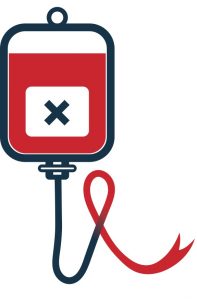The Inquiry was continuing the theme of Scottish Haemophilia Centres this week and the second clinician to give evidence was Professor Hann.
The focus of Professor Hann’s evidence was regarding his role at the Royal Hospital for sick Children, Glasgow and Yorkhill Hospital, Glasgow.
Professor Hann told the Inquiry that he began his role at Yorkhill hospital in 1983 during quite a chaotic time when the hospital was under resourced. The Inquiry heard how working at the haemophilia centre at the hospital was one of Professor Hann’s several responsibilities. Professor Hann explained that when he arrived at the hospital in 1983 there was not a designated haemophilia centre and he had to rely on multi-use areas in the day care centre in order to provide haemophilia services.
Professor Hann explained that following his time at the Royal Free Hospital, London in the late 1970s he had gained a great deal of insight on how routine haemophilia clinic appointments should be run and implemented these policies at Yorkhill hospital.
The Inquiry heard how Professor Hann had instituted a different policy at Yorkhill hospital by moving away from use of commercial concentrates to entirely SNBTS concentrates. He explained that when he arrived at Yorkhill hospital he stopped all use of Factor VIII concentrate from abroad as he knew that the type of donors being used in America were prone to infections such as hepatitis.
Professor Hann was asked about the AIDS risk in the SNBTS products. Professor Hann stated that there was no guaranteed protection from the virus due to factually incorrect information provided on the Health Life Questionnaires filled out by blood donors.
Professor Hann told the Inquiry that non-A, non-B hepatitis came to the forefront of medical journal publications in the latter part of 1979 and 1980 and he explained that clinicians were aware that a single dose of factor concentrate was enough to transmit the virus. However, he said that at that point in time the persistency of the infection was not known and the damage that it could cause to the liver was not known.
The Inquiry heard Professor Hann admit that he did not make sufficient proactive enquiries to establish what children and their families had been told about the risk of contracting hepatitis through blood products and admitted that he did not provide them with sufficient information following their diagnosis of the disease.
Professor Hann told the Inquiry that once he became aware of the prevalence of hepatitis and AIDS in the blood products then previously untreated patients were given cryoprecipitate as a matter of policy. He went onto state that young children were given cryoprecipitate instead of blood products unless they had a severe bleed.

